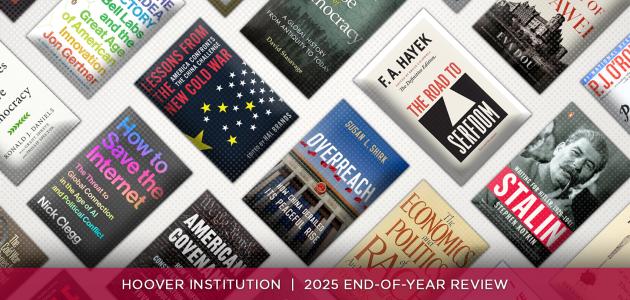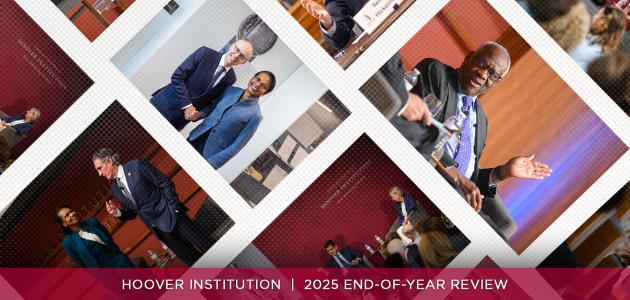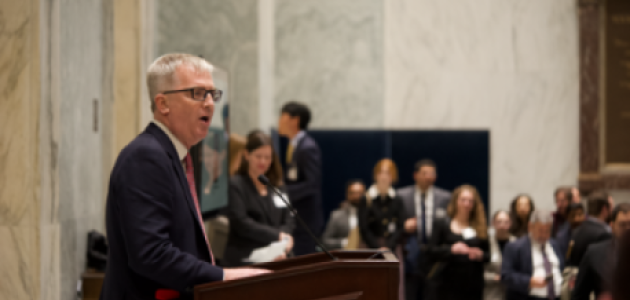
Register for conference here. Use code GuestIP2LCIICIP for a complementary ticket.
The Fourth Industrial Revolution—the fusion of digital technologies, characterized by big data, artificial intelligence, robotics, smartphones, and autonomous vehicles—will affect how people work, communicate, and travel. Hoover IP² has organized a conference, “Institutions and Regulation for the Fourth Industrial Revolution,” that addresses a core public policy question: What institutions, policies, rules, and regulations will maximize individual benefits and economic surplus as the Fourth Industrial Revolution takes root?
On May 3, 2019, scholars, legal experts, government officials, and public sector representatives from the US, Europe, and China, will convene in Brussels, Belgium, to offer their perspectives on the role of government, the future for mature and emerging industries, the provision of health care, and ethical concerns related to the Fourth Industrial Revolution.
Organized in cooperation with the Liège Competition and Innovation Institute at Liège University and the Center for Intellectual Property (CiP) at the University of Gothenburg, the conference features four panels that address a variety of issues: globalism and the international marketplace, industrial competition, business models, regulation and antitrust, and the Internet of Things.
In explaining the reason for the conference, Stephen Haber, Bing Senior Fellow at the Hoover Institution and professor of Political Science at Stanford University, said, “Countries changed their laws, and institutions adapted technologies of the First, Second, and Third Industrial Revolutions—but they did not do so uniformly. Some countries adapted quickly and efficiently, others slowly, and still others rejected the new technologies because they threatened the existing social and political order. We see the results today in the wide variance in levels of material prosperity across countries. There is every reason to believe that the same thing will happen in the Fourth Industrial Revolution.”
Haber and Alexander Galetovic, Nicolas Petit (a conference co-organizer), Gunther Friedl and Christoph Ann, and Alexadre de Streel will present papers on the implications of the Fourth Industrial Revolution for antitrust, regulation, and patent policy. In addition, two panels of industrialists, government officials, and academicians will examine scholarly claims and theories from the perspective of international competitiveness and consistency with other regulatory goals.
“The size, speed, and level of disruption—mostly for good—will be unprecedented,” said Hoover fellow Richard Sousa. “It is virtually impossible for governments to get out ahead of these changes, but they must be active. At this conference, we hope to describe what governments might be looking at and how to respond.”
Haber concluded, “How societies adapt their laws and institutions will determine the distribution of economic development in the twenty-first century.”
To register for the conference, click here.





















